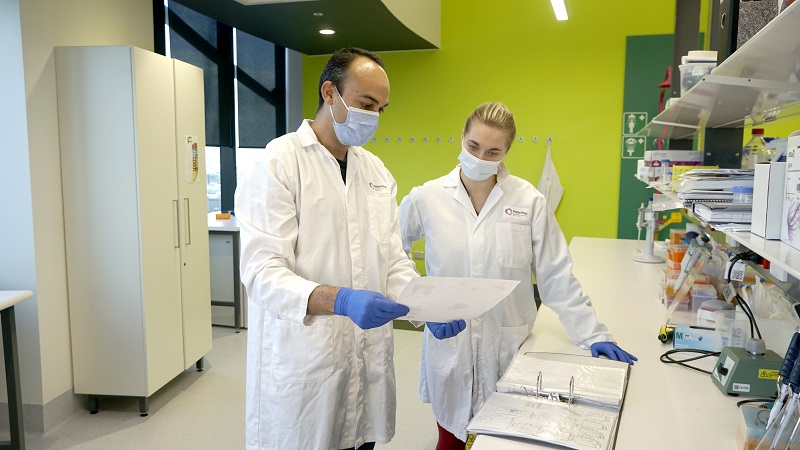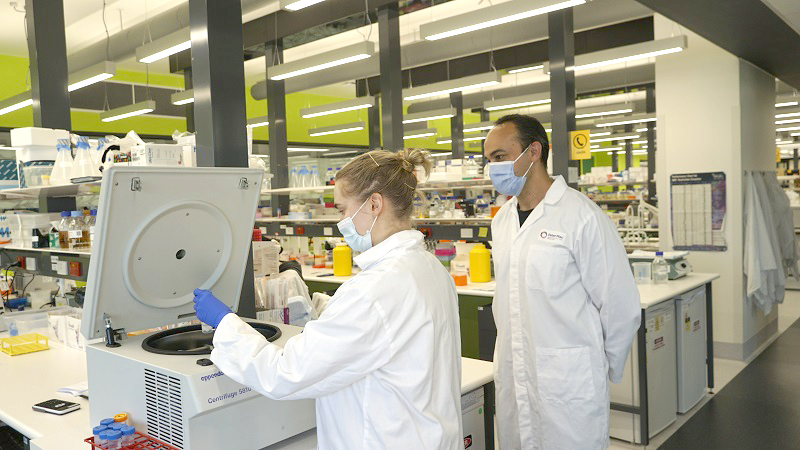The Australian Government is now in caretaker period. During this time, updates on this website will be published in accordance with the Guidance on Caretaker Conventions, until after the election.
Drugs already approved and available could be the answer to boost the production of killer T cells and improve the success rate of immunotherapies for cancer.

Dr Ian Parish, who holds a joint position in cancer immunology at the Peter MacCallum Cancer Centre and the University of Melbourne, received a four-year $1,154,196 Ideas Grant to investigate the repurposing of a drug to increase the number of patients who respond to cancer immunotherapy.
'Immunotherapies have emerged as a revolutionary treatment for cancer in the last 10 years,' Dr Parish said.
'The revelation from these therapies has been that the immune system is capable of recognising tumours. Tumours often shut down this immune response, and immunotherapies work by reawakening the immune system so that it attacks the tumour.
'The issue is that, although immunotherapies are a major advance for some cancers, the majority of people don’t respond to cancer immunotherapy. As a result, there is a lot of interest in understanding how these therapies work and how we can boost that response rate.
'We have identified a new set of molecular switches that shut down immune function and limit responsiveness to existing immunotherapies. Importantly, we have found a class of approved drugs that can block these immune 'off switches'.'

The drugs being repurposed are thalidomide derivatives which are currently used to treat some blood cancers by directly eliminating cancer cells.
'We have found that thalidomide derivatives can selectively expand an immunotherapy-responsive population of killer T cells, which are an important type of anti-tumour immune cell. This proposal will test if these drugs can be repurposed as a novel treatment to amplify the efficacy of existing immunotherapies,' he said.
'The super exciting thing is we’re able to do this with a drug that has already been approved for cancer treatment.'